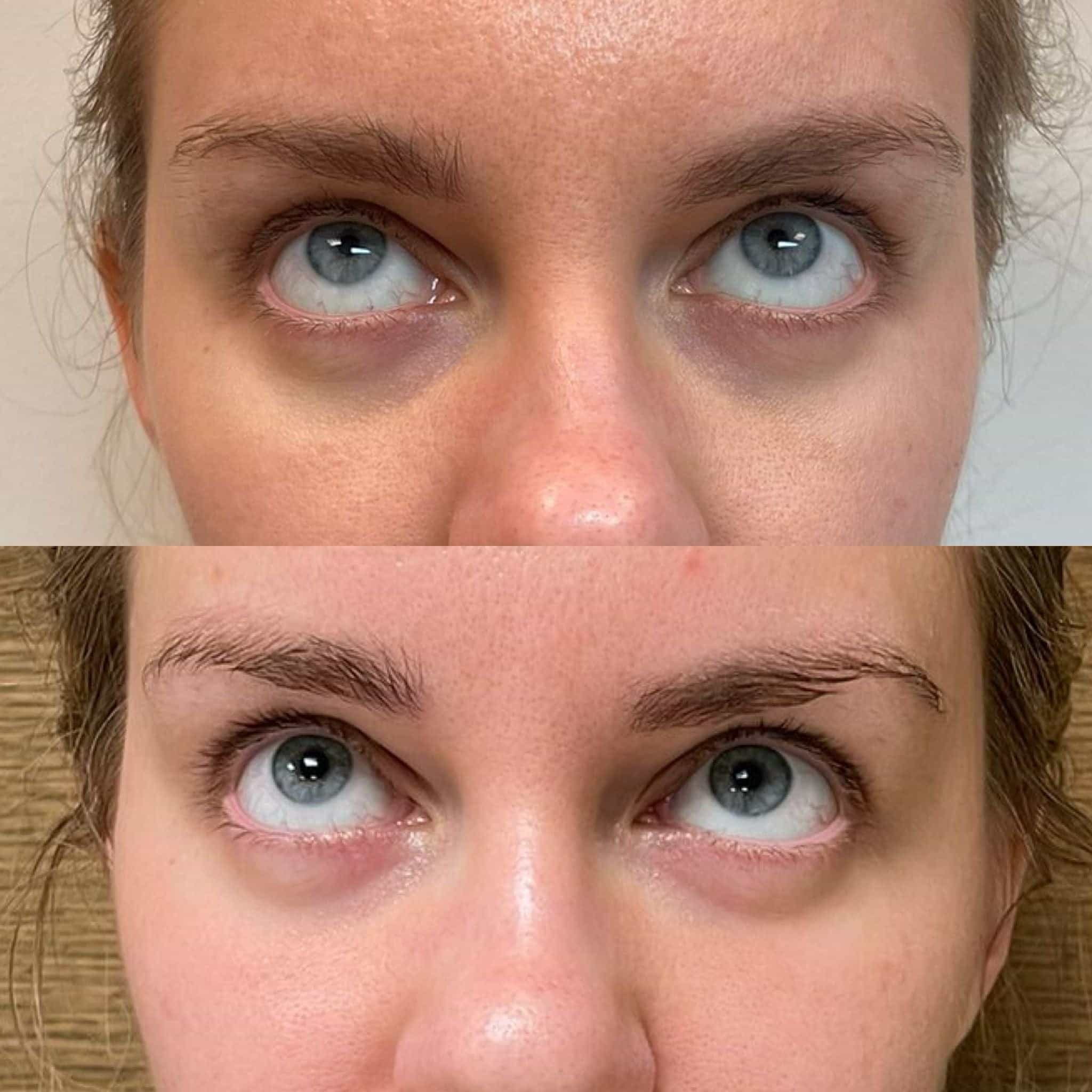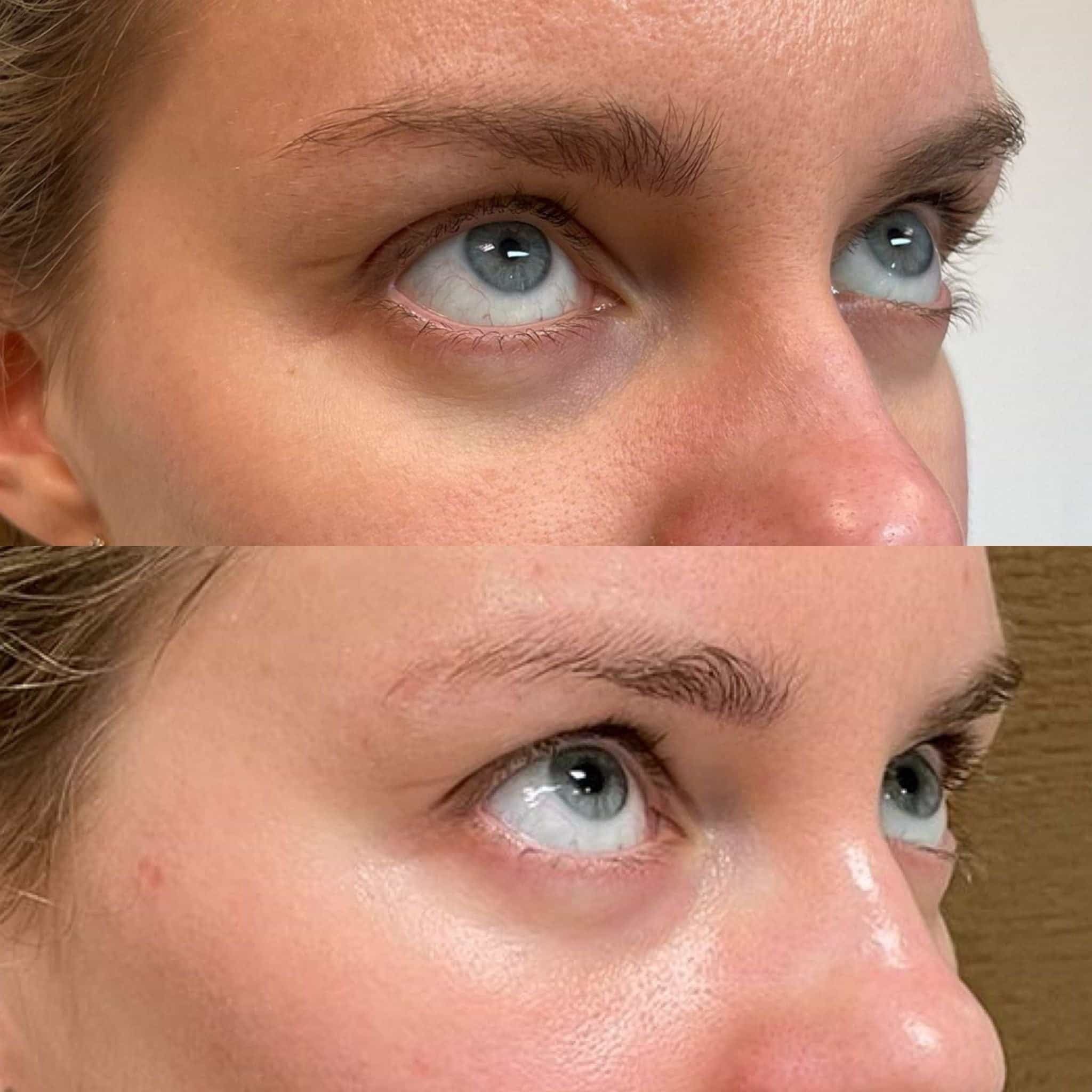Mechanism of Action
Understanding how medical treatments work at a fundamental level is crucial for both healthcare professionals and patients. This understanding, known as the mechanism of action, explains the specific steps a treatment takes to achieve its desired effect. When it comes to polynucleotide injectables and their ability to stimulate collagen production in the UK, delving into the mechanism of action provides valuable insights into how these treatments can effectively combat skin aging and improve skin texture.
Binding to Integrin Receptors
Polynucleotide injectables exert their effects by binding to specific integrin receptors present on the surface of skin cells. Integrins are transmembrane proteins that play a crucial role in cell adhesion, migration, and communication.
Upon binding to integrins, polynucleotides trigger a cascade of intracellular signaling events. This activation leads to increased expression of genes involved in collagen synthesis, ultimately resulting in the production of more collagen.
Stimulation of Fibroblast Activity
This stimulation of collagen production is crucial for maintaining skin elasticity and firmness. Collagen is the main structural protein in the skin, providing strength and support. As we age, collagen production naturally declines, leading to wrinkles, sagging, and a loss of youthful volume.
By boosting collagen synthesis, polynucleotide injectables can help counteract these age-related changes, improving skin tone, texture, and overall appearance.
Activation of Growth Factors
Polypeptide injectables work by activating growth factors within the skin. These growth factors are crucial signaling molecules that regulate cell processes, including collagen production.
- When injected into the skin, polynucleotides interact with cell surface receptors.
- This interaction triggers a cascade of intracellular signaling events.
- These signals activate specific genes responsible for producing growth factors like transforming growth factor-beta (TGF-β) and platelet-derived growth factor (PDGF).
- These activated growth factors then stimulate fibroblasts, the cells responsible for collagen synthesis.
- As a result of this stimulation, fibroblasts increase their production of collagen.
This increased collagen production helps to improve skin elasticity, firmness, and overall texture.
Clinical Applications in the UK
In the UK, polynucleotide injectables have emerged as a popular treatment option for addressing signs of skin aging. These injectable solutions contain purified polynucleotides, which are molecules found naturally within the body and play a vital role in cell function and communication.
Skin Rejuvenation
Polynucleotide injectables work by stimulating collagen production through a complex process involving cell signaling and gene activation.
When injected into the skin, these polynucleotides bind to specific integrin receptors on the surface of skin cells. This binding triggers a cascade of intracellular signaling events that ultimately lead to increased expression of genes responsible for collagen synthesis.
As a result, fibroblasts, the cells responsible for producing collagen, are stimulated to create more collagen, which is essential for maintaining skin elasticity, firmness, and overall texture.
The effectiveness of polynucleotide injectables in stimulating collagen production has made them a popular choice for addressing signs of aging in the UK.
Patients seeking to improve skin tone, reduce wrinkles, and enhance their skin’s youthful appearance often turn to these treatments.
Treatment of Wrinkles and Fine Lines
Polynucleotide injectables have become increasingly popular in the UK for treating wrinkles and fine lines. These treatments work by stimulating the body’s natural collagen production.
Collagen is a protein that provides structure and support to the skin, giving it elasticity and firmness. As we age, collagen production naturally declines, leading to wrinkles and sagging skin.
Polynucleotide injectables contain molecules that mimic the body’s own signals for collagen synthesis.
When injected into the skin, they interact with cells and trigger a cascade of events that ultimately lead to increased collagen production. This results in firmer, smoother, and more youthful-looking skin.
These treatments offer a non-invasive alternative to surgery for improving signs of aging.
Volume Augmentation
Polynucleotide injectables are a popular treatment option in the UK for addressing signs of skin aging. They work by stimulating collagen production, a key protein responsible for skin elasticity and firmness.
As we age, our natural collagen production declines, leading to wrinkles, sagging, and a loss of youthful volume. Polynucleotides, when injected into the skin, interact with cell receptors and trigger a cascade of events that ultimately lead to increased collagen synthesis. This boosts the skin’s structural integrity, resulting in a smoother, firmer, and more youthful appearance.
Polynucleotide injectables offer a non-invasive alternative to surgical procedures for improving signs of aging. They are generally well tolerated with minimal downtime, making them a popular choice for individuals seeking to rejuvenate their skin.
Scar Reduction
Polynucleotide injectables have become increasingly popular in the UK for treating wrinkles and fine lines. These treatments work by stimulating the body’s natural collagen production.
Collagen is a protein that provides structure and support to the skin, giving it elasticity and firmness. As we age, collagen production naturally declines, leading to wrinkles and sagging skin.
Polynucleotide injectables contain molecules that mimic the body’s own signals for collagen synthesis.
When injected into the skin, they interact with cells and trigger a cascade of events that ultimately lead to increased collagen production. This results in firmer, smoother, and more youthful-looking skin.
These treatments offer a non-invasive alternative to surgery for improving signs of aging.
Benefits of Polynucleotide Injectables for Collagen Production
Polynucleotide injectables have emerged as a popular treatment option for addressing signs of skin aging in the UK. These injectables contain purified polynucleotides, naturally occurring molecules that play a vital role in cell function and communication.
By stimulating collagen production, these treatments can help counteract age-related changes to the skin.

Natural Collagen Stimulation
Polynucleotide injectables are gaining popularity in the UK for their ability to stimulate collagen production and address signs of skin aging. Collagen is a vital protein that provides structure and support to the skin, contributing to its elasticity and firmness. As we age, collagen production naturally declines, leading to wrinkles, sagging, and a loss of youthful volume.
Polynucleotide injectables work by mimicking the body’s natural signals for collagen synthesis. When injected into the skin, these polynucleotides interact with cells and trigger a cascade of events that ultimately lead to increased collagen production. This boosted collagen synthesis helps improve skin tone, texture, and overall appearance by enhancing firmness and elasticity.
Polynucleotide injectables offer a non-invasive alternative to surgical procedures for rejuvenating the skin. They are generally well-tolerated with minimal downtime, making them a popular choice among individuals seeking to address signs of aging without undergoing invasive treatments.

Long-Lasting Results
Polynucleotide injectables are increasingly popular in the UK for treating wrinkles and fine lines. These treatments work by stimulating the body’s own collagen production, a protein that provides structure and support to the skin, giving it elasticity and firmness.
As we age, collagen production naturally declines, leading to wrinkles and sagging skin. Polynucleotide injectables contain molecules that mimic the body’s natural signals for collagen synthesis.
When injected into the skin, they interact with cells and trigger a cascade of events that ultimately lead to increased collagen production. This results in firmer, smoother, and more youthful-looking skin. These treatments offer a non-invasive alternative to surgery for improving signs of aging.
Minimal Downtime
Polynucleotide injectables offer a minimally invasive approach to stimulating collagen production, leading to improved skin texture and reduced appearance of wrinkles.
Unlike surgical procedures, these injectables require minimal downtime, allowing individuals to return to their daily activities quickly.
Biocompatibility
Polynucleotide injectables stimulate collagen production by interacting with cell surface receptors, triggering a cascade of intracellular signaling events. This ultimately leads to increased expression of genes responsible for collagen synthesis.
These treatments are biocompatible because they utilize naturally occurring molecules found within the body, minimizing the risk of adverse reactions.
Polynucleotides mimic the body’s own signals for collagen production, promoting a natural and harmonious response from the skin.
Safety and Potential Side Effects
Before undergoing any medical treatment, it is crucial to understand its potential side effects. Polynucleotide injectables, while generally safe, can cause mild and temporary side effects such as redness, swelling, or bruising at the injection site.
It’s important to discuss your medical history and any medications you are taking with a qualified healthcare professional before undergoing treatment with polynucleotide injectables. They can assess your suitability for the treatment and advise on potential risks and benefits.
Temporary Redness and Swelling
Before undergoing any medical treatment, it is crucial to understand its potential side effects. Polynucleotide injectables, while generally safe, can cause mild and temporary side effects such as redness, swelling, or bruising at the injection site.
It’s important to discuss your medical history and any medications you are taking with a qualified healthcare professional before undergoing treatment with polynucleotide injectables. They can assess your suitability for the treatment and advise on potential risks and benefits.
Allergic Reactions (Rare)
Before undergoing any medical treatment, it is crucial to understand its potential side effects. Polynucleotide injectables, while generally safe, can cause mild and temporary side effects such as redness, swelling, or bruising at the injection site.
It’s important to discuss your medical history and any medications you are taking with a qualified healthcare professional before undergoing treatment with polynucleotide injectables. They can assess your suitability for the treatment and advise on potential risks and benefits.
Allergic reactions are rare but possible with any injection.
Infection Risk (Minimized with Proper Technique)
Before undergoing any medical treatment, it is crucial to understand its potential side effects. Polynucleotide injectables, while generally safe, can cause mild and temporary side effects such as redness, swelling, or bruising at the injection site.
It’s important to discuss your medical history and any medications you are taking with a qualified healthcare professional before undergoing treatment with polynucleotide injectables. They can assess your suitability for the treatment and advise on potential risks and benefits.
Allergic reactions are rare but possible with any injection.
Infection risk is minimal when polynucleotide injectables are administered by a trained and qualified healthcare professional using sterile techniques. Proper sterilization of equipment and aseptic injection techniques minimize the risk of bacterial contamination.
Regulatory Status and Availability in the UK
Polynucleotide injectables have gained significant traction in the UK for their ability to stimulate collagen production, addressing signs of aging like wrinkles and fine lines. The availability of these treatments is readily accessible within the regulated healthcare system in the UK.
Approved for Specific Medical Applications
Polynucleotide injectables are currently approved for use in specific medical applications within the UK.
These treatments are available through licensed medical practitioners who have undergone specialized training in their administration and application.
Accessibility through Qualified Practitioners
Polynucleotide injectables are a popular choice for addressing signs of skin aging in the UK. These treatments work by stimulating collagen production, a vital protein that provides structure and support to the skin. As we age, collagen production naturally declines, leading to wrinkles, sagging, and a loss of youthful volume.
Polinucleotides, when injected into the skin, interact with cell receptors and trigger a cascade of events that ultimately lead to increased collagen synthesis. This helps improve skin tone, texture, and overall appearance by enhancing firmness and elasticity.
Polynucleotide injectables are available through licensed medical practitioners who have undergone specialized training in their administration and application.
The UK’s healthcare system has strict regulations regarding the use of medical treatments, ensuring patient safety and well-being.
Book your skin rejuvenation consultation with Dr. Laura Geige at It’s Me & You Clinic.
- What Is The Smallest Amount Of Lip Filler - May 30, 2025
- Skin Pen Microneedling Near Dockenfield, Surrey - May 30, 2025
- Thc Infused Seltzers In South Carolina SC - May 29, 2025
